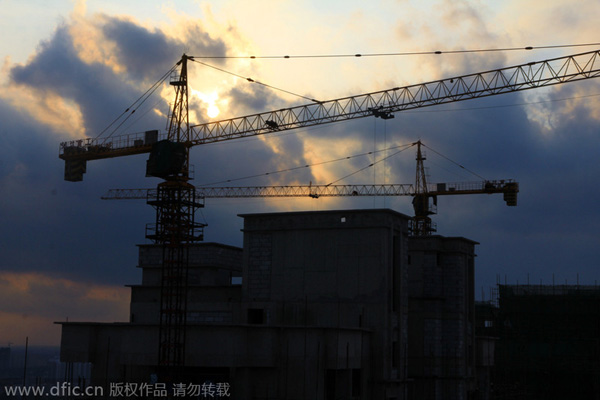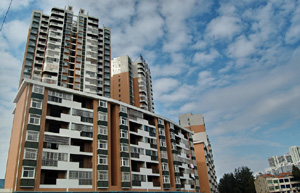 |
|
Photo taken on Oct 20, 2011 shows a construction site in Rizhao city, East China'sShandongprovince. [Photo/IC] |
China will accelerate the property tax legislation but will not rush its implementation this year, said Jia Kang, head of the Research Institute for Fiscal Science of the Ministry of Finance, at a forum organized by China Society of Economic Reform on Sunday.
According to him, property tax will enter legislative procedure in 2015 and the tax law is expected to be wrapped up by 2016. If it goes as planned, related taxes will be implemented in 2017, said Jia.
In a reform plan approved by the Third Plenary Session of the 18th Communist Party of China Central Committee last year, the country vowed to accelerate the legislation of taxes and finish the reform of the fiscal and taxation system by 2016.
Property tax along with consumption tax, recourse taxes, environmental tax, personal income tax and the change from business tax to value-added tax will be the focus of the reform, he said.
A suitable plan will be discussed fully during the legislative process and the country will not copy the taxation mode from the US, said Jia.
China launched property taxes in Shanghai and Chongqing on a trial basis in 2011 to tighten its property market control. It was expected that the trials would be expanded to cover more regions, but the expansion was postponed due to the lack of legal basis.
The impact property tax will have on housing prices triggered wide debate in the country. Some believe that the full implementation will restrain the investment speculation in property market and will help tame the housing price while others believe that the taxation will encourage the market and push up the price.
Jia said people should not have high hope on taxation’s impact on controlling the property prices. As its function is to stabilize the property market, the implementation is unlikely to help lower the price sharply.
|
 |
 |
| Mortgage rule changes said to be in the pipeline | China property hard sell intensifies in bid to lift sagging sector |
